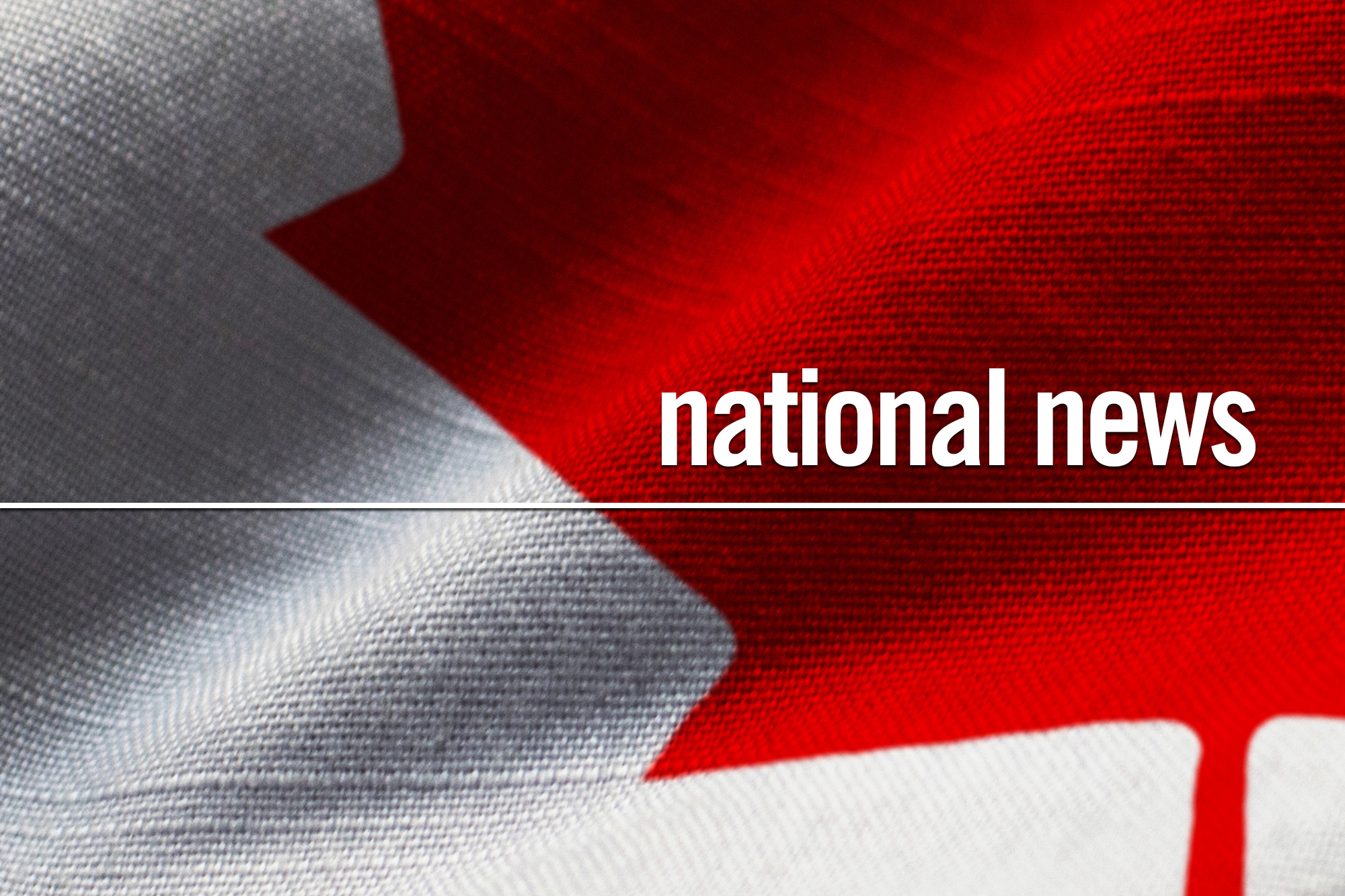As COVID-19 vaccine supplies ramp up across the country, most provinces and territories have released details of who can expect to receive a shot in the coming weeks.
The military commander handling logistics for Canada’s vaccine distribution program says there will be enough vaccine delivered to give a first dose before Canada Day to every adult who wants one.
Maj.-Gen. Dany Fortin says that’s if provinces follow the advice to delay second doses up to four months.
He also cautions that it is dependent on having no production delays again.
Health Canada anticipates a total of 36.5 million doses from Pfizer-BioNTech, Moderna and the AstraZeneca vaccine from the Serum Institute of India by June 30.
Most Canadian provinces have suspended use of the Oxford-AstraZeneca COVID-19 vaccine in people under age 55, acting on an advisory committee’s concerns about a possible link between the shot and rare blood clots. However, Ontario and Alberta have lowered the age eligibility to those 40 and older.
There are approximately 31 million Canadians over 16, and no vaccines are approved for anyone younger than 16.
Here’s a list of the inoculation plans throughout Canada:
Newfoundland and Labrador
Health officials say vaccinations have begun for first responders. Pre-registration for COVID-19 vaccines has opened for people aged 70 or older and for home-support workers.
Last month Newfoundland and Labrador extended the interval between the first and second doses of the COVID-19 vaccine to four months.
Public health officials said the change would help them vaccinate 40,000 more people with a single dose by the end of March.
—
Nova Scotia
All Nova Scotians who want a vaccination should be able to get their first shot by late June, chief medical officer of health Dr. Robert Strang announced on April 9. The original target was September.
Strang also said that as of April 9, Nova Scotians 65 years of age and older became eligible to receive their first dose.
As well, the Oxford-AstraZeneca vaccine is still available for those 55 to 64 years old.
The province is also planning to use mobile van clinics to vaccinate about 900 people who work at or use homeless shelters in the Halifax area.
Public health is partnering with pharmacists and doctors to provide the vaccines at 25 locations.
Nova Scotia, meanwhile, has added front-line police officers to the list of people eligible for vaccination during the second phase of the province’s rollout plan, joining groups such as long-haul truck drivers and hospital workers over the age of 60.
—
Prince Edward Island
Health officials in Prince Edward Island say they will shift their focus to getting a first dose of COVID-19 vaccine to all adults by July 1, even if it means delaying the second shot for some.
P.E.I., meantime, has joined suspended administering the Oxford-AstraZeneca vaccine to people under age 55 due to concerns about a possible link between the shot and rare blood clots.
—
New Brunswick
New Brunswick health officials say people 70 and older, a caregiver or a family member acting on their behalf can now make an appointment for a vaccine at a pharmacy.
Health-care professionals who have close contact with patients, and people with complex medical conditions are also eligible to receive a COVID-19 vaccine.
The province says all residents of long-term care homes have been offered at least one dose of vaccine.
As of March 19, all residents of First Nations communities aged 16 or older were given access to their first dose of vaccine.
Workers who regularly travel across the border, including regular commuters, truckers and rotational workers are also eligible to receive vaccines.
—
Quebec
Quebec has expanded access to COVID-19 vaccines to Montrealers who are essential workers or who have chronic illnesses.
Essential workers such as teachers and first responders can now book an appointment after providing proof of employment.
Quebec has also opened vaccination appointments for anyone over the age of 60 across the province.
Quebecers between the ages of 55 and 79 can now receive an Oxford-AstraZeneca vaccine at walk-in clinics.
The province has said it will be lowering the age for AstraZeneca, although it’s not clear what that age will be. Quebec’s director of public health says a recommendation from the province’s immunization committee is expected soon and could be put into effect this week.
Officials announced on April 8 the first 13 companies that will operate clinics in their workplaces, with each site able to vaccinate up to 25,000 people between May and August.
Participating companies include National Bank, Bell, and Groupe CH, owner of the Montreal Canadiens NHL team. The clinics will be located in eight different health regions and should be operational by May 1.
Montreal’s airport authority will partner with Air Canada and Bombardier to create a vaccination hub that will operate two sites at the departure level of the airport terminal and in a nearby Bombardier hangar.
—
Ontario
Ontario is expanding the number of residents eligible to receive the Oxford-AstraZeneca vaccine.
Starting Tuesday, those 40 and older can start receiving the shot. The previous cutoff age was 55. Shots will be available through pharmacies and primary care providers.
But Premier Doug Ford’s office warned Monday that provincial officials have warned that the next two shipments of the Oxford-AstraZeneca shot to the province could be delayed.
Ford’s office says he has reached out to “international allies” for help acquiring more supply of the vaccine for the province.
Ontario, meantime, is doubling the number of pharmacies involved in the provincial vaccine effort.
Some 1,400 pharmacies in COVID-19 hot spots are now offering the Oxford-AstraZeneca vaccine. The province says it hopes to add another 100 pharmacies to the vaccine effort by the end of the month.
Some residents of Toronto and Peel Region aged 50 and older can now book their COVID-19 vaccine appointments.
Toronto says people who live in hot spot neighbourhoods can book an appointment to get their shot.
The Ontario government said beginning April 5, people aged 60 and over could book their vaccine appointments in every region.
—
Manitoba
Manitoba is using the Pfizer and Moderna vaccines for First Nations people aged 34 and up and others aged 54 and up. These are available through a few channels, including so-called supersites in larger communities. Health officials plan to continue reducing the age minimum, bit by bit, over the coming months.
The province is also allowing anyone 40 and over to get an Oxford-AstraZeneca vaccine through pharmacies and medical clinics, subject to availability.
Manitoba has now given at least one dose of vaccine to roughly 25 per cent of the population aged 18 and over.
Dr. Joss Reimer, medical lead of the province’s vaccine task force, has said all adults in the province could have a first dose by the end of June if supplies are steady.
Manitoba will also soon start prioritizing firefighters and police officers for vaccines, as well as all adults living in high-risk areas, which have yet to be defined.
—
Saskatchewan
The Saskatchewan Health Authority is booking vaccinations for residents 48 and older. The minimum age drops to 40 for people living in the Far North.
Additional health-care workers are eligible for shots: staff in private doctors’ offices, private digital imaging clinics, community labs and the Saskatchewan cancer agency.
The province has also expanded the vaccine delivery plan for people in more vulnerable groups to include all pregnant women and 16- and 17-year-olds who are considered clinically extremely vulnerable.
There are drive-thru and walk-in vaccination clinics in communities across the province. However, drive-thru sites in Regina and Saskatoon have been temporarily suspended due to limited supply.
—
Alberta
Albertans born in 2005 or earlier with high-risk underlying health conditions are eligible for shots.
The next phase of health-care workers can also book appointments: physicians, nurses, pharmacists, dentists, their office staff, lab workers, practicum students in clinical areas, as well as health workers on First Nations reserves and Metis settlements.
Previously, shots have been available to front-line health workers, staff and residents in supportive living facilities, Albertans born in 1956 or earlier and First Nations, Inuit and Metis people born in 1971 or earlier.
More than 250 pharmacies are offering immunizations. Ten physicians clinics across the province are also providing shots as part of a pilot project, which could be expanded in May.
The province has also lowered the minimum age for the Oxford-AstraZeneca vaccine to 40 from 55.
Alberta has said it is extending the time between the first dose and the second to four months.
Health Minister Tyler Shandro has said the province expects to offer all Albertans 18 and over a first dose of vaccine by the end of June.
—
British Columbia
The province is lowering the eligibility age for people to register for COVID-19 vaccinations.
The Ministry of Health says more than 1.8 million people are eligible to register for vaccines this week through the province’s Get Vaccinated program.
The ministry says people 40 years old and older were invited to register Monday, with those 35 and older signing up Tuesday and 30 and older Wednesday.
Those 25 and older can register Thursday and 18 and above can sign up Friday.
Once registered, users receive a confirmation code. They then wait for an email, text or call telling them they’re eligible and can book their vaccine appointment using that code.
B.C. has joined other provinces in lowering the age for those eligible to receive the Oxford-AstraZeneca shot to 40.
Adults living and working in Whistler started receiving their COVID-19 vaccinations on April 12.
Firefighters, police and paramedics, meanwhile, are being vaccinated with the Pfizer-BioNTech and Moderna vaccines alongside staff at schools and childcare centres.
—
Nunavut
Nunavut has opened vaccinations to anyone 18 and older.
The territory expects to finish its vaccine rollout of first and second doses by the end of April.
—
Northwest Territories
The Northwest Territories is also providing vaccine to those 18 and older and expects to finish its rollout by the end of April.
—
Yukon
The Yukon government says nearly 46 per cent of the territory’s residents have now been fully vaccinated against COVID-19.
Priority for vaccinations has been given to residents and staff in long-term care homes, group homes and shelters, as well as health-care workers and personal support workers. People over the age of 80 who are not living in long-term care, and those living in rural and remote communities, including Indigenous Peoples, are also on the priority list for shots.
—
This report by The Canadian Press was first published April 20, 2021.
The Canadian Press
Source:- Airdrie Today
Source link
Related



























